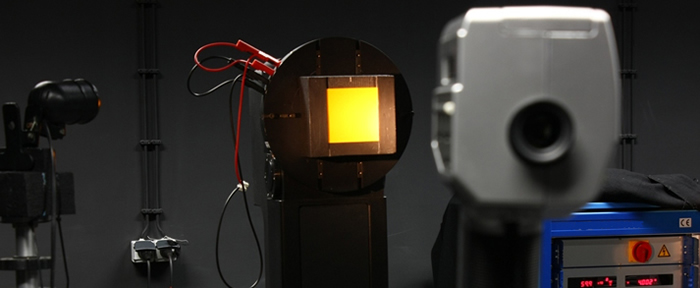Photometry and Colorimetry Laboratory
|
||
|
The Photometry and Colorimetry Laboratory (UFC) is part of the Buildings Department of LNEC, within the Acoustics, Lighting, Building Components and Facilities Unit (NAICI). UFC had its genesis during the 1980s and arose from the need to support the Portuguese industry in the areas of the characterization of light measurement equipment, lighting equipment, and optical components for the automotive industry, having been formally established in 1992. Additional information can be found at this laboratory's flyer. Field of expertiseUFC develops a diversified activity within the characterization and performance evaluation of the following types of equipment, materials, and construction systems, either in laboratory or in situ:
TestingUFC performs several tests in the fields of photometry, colorimetry and lighting in general, including the following: Laboratory tests
In situ tests
Other servicesIn addition to the tests mentioned, and within NAICI’s framework, UFC also conducts studies of a more comprehensive nature, which are related with: the visual comfort conditions in buildings; the energy impacts resulting from the use of natural and artificial lighting and the suitability and compliance of daylighting; and with the electric lighting conditions in the interior spaces of buildings. In general, these studies are associated with contract research services in various areas such as:
|





